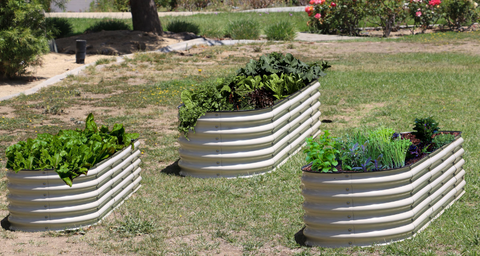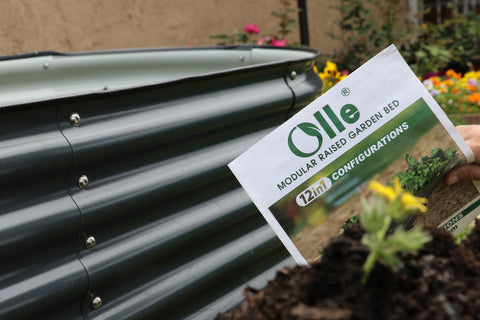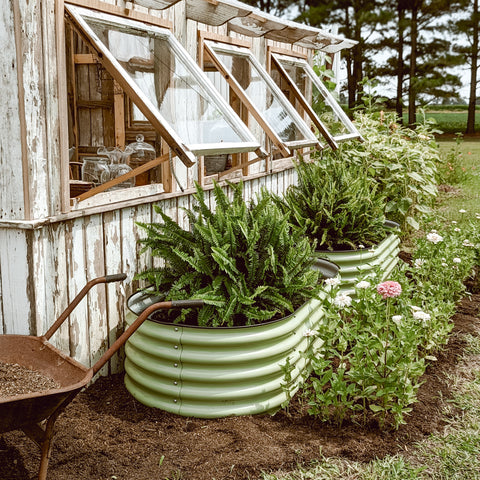What Soil Is Best For A Raised Garden Beds
When it comes to gardening, the type of soil you use can have a big impact on the results you get. Various soils have different levels of nutrients, moisture and drainage. This is why it is important to choose the right soil type before planting. The following is a summary of the best soil types for raised garden beds, and some tips on how to choose the soil that suits your needs.

What is the best soil for a raised garden bed?
There are many factors to consider when choosing the right soil for your raised garden bed. The most important thing is the type of plant you want to plant. Different plants have different soil requirements. For example, some plants like sandy soil, while others like clay.
Another key factor is drainage. The drainage effect of the raised garden bed is better than that of the underground garden, but the drainage effect of some soils is better than that of other soils. If you live in an area with sufficient rainfall, please choose a well drained soil to prevent your elevated bed from being flooded.
Finally, you need to consider the nutrient content of the soil. Gardeners often add compost or other organic matter to their raised garden beds to improve soil quality. If you choose a soil with already high nutrients, you may not need to add anything extra.
However, as a general rule, the best soil for raised garden beds is a mixture of topsoil (sand, silt and clay) and peat moss, potted soil and compost. Taken together, it is a good source of essential minerals, nutrients and drainage for plants to thrive.
Optimum soil combination
Clay
Clay is one of the most common soil types in raised garden beds. It is also one of the most difficult to cooperate with. Clay is dense and poorly drained, which means it is easy to be flooded and compacted. It will make it difficult for the root to penetrate the soil and obtain the required nutrients.
You can take some measures to improve the clay in the raised garden bed:
Adding organic matter: Compost or decomposed feces will help improve the structure of clay, make it more porous, and make the root more permeable.
Sand improvement: sand improvement of clay will help improve drainage. Note that this makes the soil more difficult to handle.
Use garden beds: Raised garden beds provide better drainage than underground gardens, making them a good choice for clay.

Sand
Sand is useful when added to the mix of raised garden beds because it improves drainage and is easy to use.
One thing to remember about sand is that it will dry quickly, so you need to water the plants diligently. Raised garden beds can help improve soil drainage, but be sure not to add too much sand.
Sand is very suitable for good drainage, but if your plant needs some water retention, please add more organic substances, such as compost or peat moss. It will help to keep water and nutrients in the soil. You can also add a layer of mulch to help keep the soil moist.
If you are planting vegetables on a raised garden bed, be sure to choose a variety that is suitable for sandy soil.
Silt
The silt consists of very fine particles. It is very dense, making it difficult for plants to grow alone. But when mixed with other ingredients, it is a perfect part of a raised garden bed.
By providing good drainage, the raised garden bed enables plants to grow and thrive.
Sphagnum
Sphagnum is an excellent material for using a raised garden bed soil mix. It has many advantages, making it an ideal choice for growing vegetables.
Sphagnum is a good choice because it is light and easy to use. You can easily add it to existing soil to improve drainage and aeration. Sphagnum also helps to retain essential nutrients for healthy plant growth. Peat moss can keep water well, which is beneficial to vegetable plants that need a lot of water.
Potted soil
Potted soil does not contain harmful chemicals and pests that may damage plants. It includes different substances, such as perlite, peat moss, bark, etc., to help plant health.
In addition, it is light and easy to use, very suitable for elevated beds. Last but not least, potted soil can also hold water well, so your plant will always have the water it needs. You can also make your own potted soil!

Organic compound
Organic matter is essential for a healthy raised garden bed. It helps to provide the necessary nutrients and improve the drainage, aeration and water retention of the soil. If you add too much sand or clay to the soil of the raised garden bed, adding organic matter may be the solution to the problem.
Raised garden beds are a great way to grow vegetables, herbs and flowers. But before planting, you need to select the appropriate soil for the elevated bed. Before making a final decision, consider the type of plant you want to plant, the drainage and nutrient content of the soil. With some planning, you can create the perfect raised garden bed for your home.
So, what are you waiting for? Start your raised garden bed today! If you have any tips or tips to share, please be sure to comment below. We'd love to hear from you.
